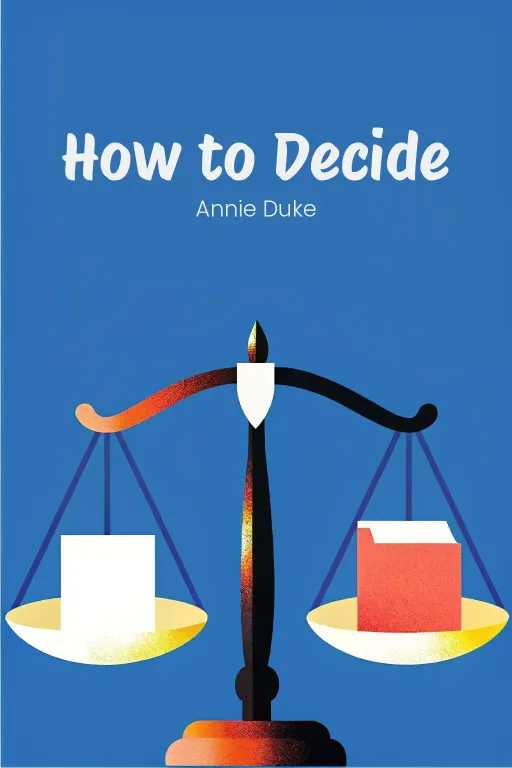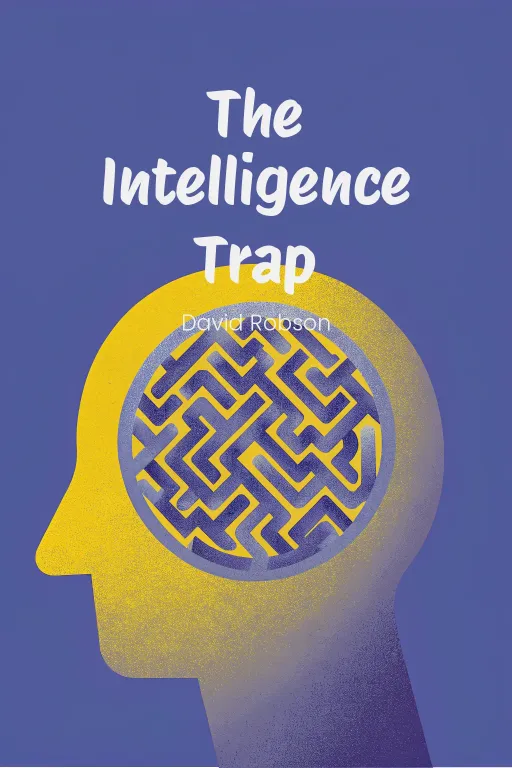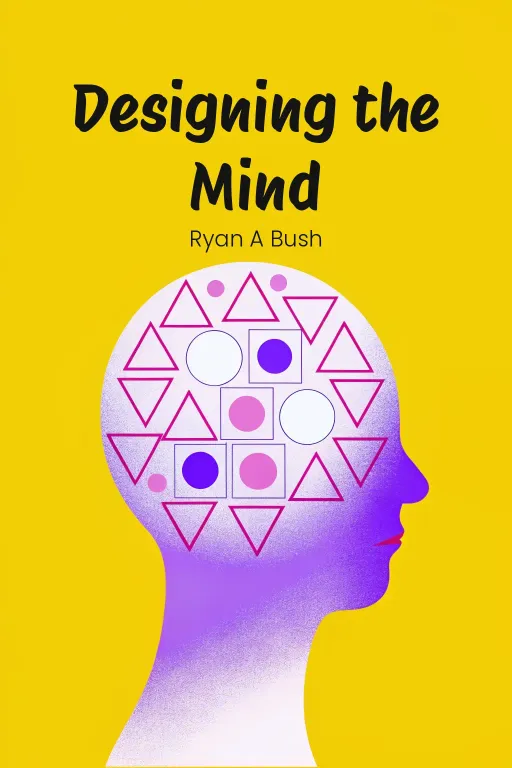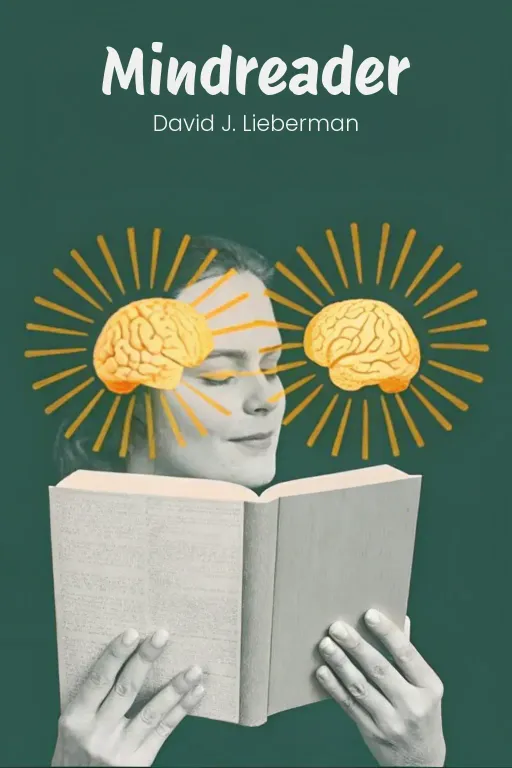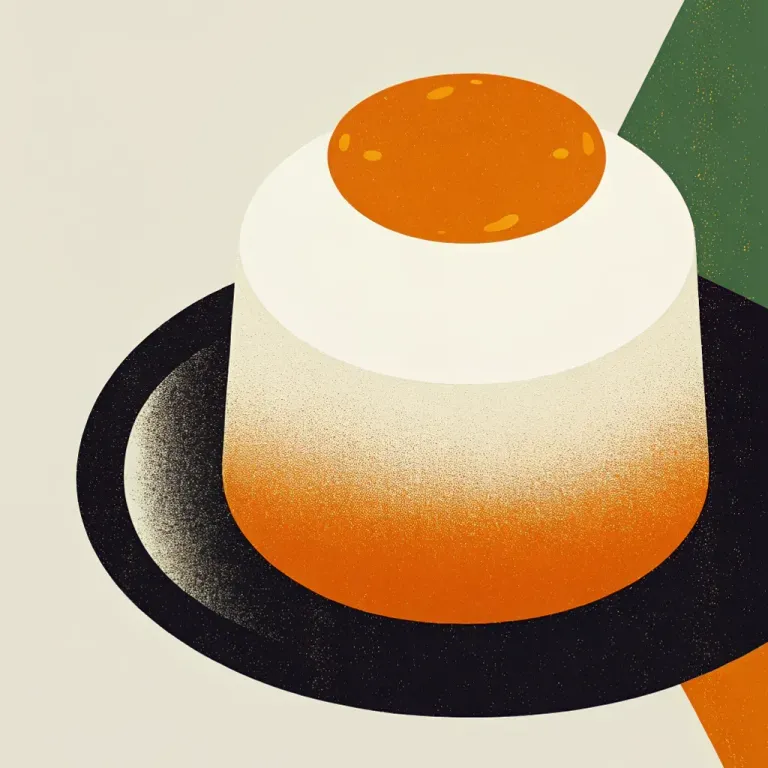
Master Your Impulses: A Brain Training Guide
Podcast by The Mindful Minute with Autumn and Rachel
Mastering Self-Control
Master Your Impulses: A Brain Training Guide
Part 1
Autumn: Hey everyone, welcome back to the podcast! Today we're tackling something super relevant to, well, almost everything we do: self-control. You know, like resisting that tempting dessert, dragging yourself out of bed when the alarm goes off, or just staying cool when things get crazy. It really does shape who we are. Rachel: Exactly, Autumn. But honestly, how many of us actually feel like we've got this nailed? It seems like one minute you're laser-focused, and the next? Total social media rabbit hole for hours. So, is self-control something we can genuinely improve, or are some of us just destined to fail the marshmallow test forever? Autumn: We are so here to bust that myth today! The book we're digging into shows that self-control isn't just something you're born with; it's a skill you can actually develop. And yeah, those marshmallow tests you mentioned? They're key. Researchers use them to see how self-control early on can predict success, not just in school, but in health, happiness, even relationships – like, decades down the road. Rachel: So we're talking about the inner workings of self-control? Sounds like some heavy-duty neuroscience. Autumn: Absolutely! We're going to break it down into three main areas. First, the really cool science behind self-control – how our brains juggle impulses versus logic. Then, we'll look at how this can change your life, from your career to, you know, your health. And finally, we're going to give you some practical tools to build your self-control muscle. Think of this episode as your guide to outsmarting those impulsive urges and turning willpower into lasting success. Rachel: Science, life improvements, and ways to stop buying stuff I don't need? I'm in. Let's do this!
Self-Control as a Trainable Skill
Part 2
Autumn: Okay, let's dive right in. What “is” self-control, and why should we even care? Well, at its heart, it's your ability to manage your thoughts, feelings, and actions when you're faced with temptation or just a strong desire. But the really cool thing is, it's not some gift you're born with or not. This book makes a strong case, backed by research, that self-control is a “skill”. Like any skill, you can get better at it with the right strategies and a little effort. Rachel: Alright, I'm listening. Calling it a skill gives me hope. But if I'm hardwired to crave instant rewards, aren't we fighting an uphill battle against our own biology? I mean, seriously, when there's cake in the fridge practically screaming my name, and my future self is whispering about, you know, fitting into my jeans... who wins that internal debate? Autumn: Precisely! Actually, that internal battle is a perfect way to describe the two cognitive systems at play in our brains: the "hot" system and the "cool" system. The hot system? It's emotional, impulsive – think of a toddler throwing a tantrum because they want candy now. It just reacts. All it wants is immediate gratification. The cool system is like the calm, rational parent. It's logical, reflective, and focuses on making decisions that align with your long-term goals. So, the cool system helps you consider the consequences. Rachel: Okay, so the hot system is basically my inner party animal. And the cool system is that friend who texts me, "Are you sure you need another drink?" Got it. But in the heat of the moment, what makes one system overpower the other? Autumn: Well, you can train your cool system! That's where self-control strategies come in handy. The Marshmallow Test perfectly demonstrated this. Kids were presented with a marshmallow and told if they waited, they'd get two. Researchers observed some pretty fascinating mental strategies that those kids who resisted the temptation engaged in! They essentially activated their cool systems by reframing the situation. They stopped seeing the marshmallow as something delicious they were missing out on. One kid imagined it was this fluffy cloud; another sang songs to distract herself. These little tricks weakened the emotional pull of the hot system. Rachel: Okay, the marshmallow thing is cute, but can I really apply "reframing" as an adult? Like, if I'm scrolling through social media when I should be working, am I supposed to tell myself, "This isn't a phone, it's a... paperweight?" I mean, that feels a little silly, doesn't it? Autumn: You might be surprised at what you can accomplish with reframing, though! The book gives real-life examples of people using cognitive reappraisal, which is just fancy for changing how you perceive a temptation. So, instead of seeing junk food as a reward, you imagine it clogging your arteries. Or, instead of mindlessly scrolling through social media, you recognize you’re stealing time from your goals. Essentially, you're creating a mental distance from the urge, giving your cool system a chance to kick in. Rachel: Okay, reframing sounds like a useful mental trick, but I need something for when I'm completely blindsided. Like when I've already opened Netflix, and my hot system is screaming, "Just one episode!" Spoiler alert: it's never just one. Autumn: That's where if-then planning comes to the rescue. It's a proactive way to connect your intentions with your actions. So, say you know you struggle with watching Netflix when you should be working. Your if-then plan could be, "If I feel tempted to watch Netflix before finishing my work, then I will set a timer and work for fifteen more minutes." It automates your decisions, so you're not wasting mental energy negotiating with yourself. Rachel: Right, because if I start rationalizing—“One episode won't hurt”—I've already lost. It's a pre-emptive strike against temptation. Clever. But this is all very psychological, right? What about the biology? You mentioned earlier that our brains play tug-of-war between impulse and reason. Autumn: Exactly! The prefrontal cortex, or PFC, is the real star here. This controls planning, problem-solving, and impulse control. It's basically your cool system's command center, while the limbic system, a more primitive part of your brain, drives the hot system. When you wrestle with the choice between instant gratification and a more deliberate action, it's a battle between these two brain regions. Rachel: So, the PFC is the responsible CEO, and the limbic system is the employee who wants to ditch work early for happy hour, right? Autumn: Precisely! And here's the kicker: the PFC doesn't fully develop until your mid-twenties! That's why kids and teenagers struggle with self-control—they don't have the fully formed neural infrastructure to rein in impulsivity yet. But the good news is that, even as adults, you can strengthen your PFC through practice—just like you'd train a muscle at the gym. Rachel: Hold on, if the PFC is trainable, does that mean a person’s environment plays a huge role? You don't just magically wake up with better self-control, right? Autumn: Exactly! Environment is crucial. The book explores stable, supportive environments, particularly responsive parenting, teach kids that delayed gratification is actually worth it. For example, kids learn to trust in future rewards if a parent consistently keeps their promises. But if caregiving is inconsistent, they're more likely to focus on immediate gratification, because they might not believe a reward will come later. It's a complex dance between biology and upbringing that shapes our ability to self-regulate. Rachel: That makes complete sense. So, kids who grow up in secure homes are more likely to hold out for that “second” marshmallow because they trust it will actually appear. That trust-building is such a subtle, but powerful behavioral shaper.
Conclusion
Part 3
Autumn: So, to bring it all together, self-control isn't some innate talent reserved for a lucky few—it's really a skill. A skill you can develop with practice, smart strategies, and, importantly, the right environment. When we understand the push and pull between our impulsive and rational selves, and use tools like reframing or if-then planning, then we really can train our minds to take charge. Rachel: Exactly. And it struck me how much our environment and upbringing matter. Stable surroundings, reliable rewards, consistent reinforcement—it all lays the groundwork for self-control. It's not solely about willpower—it's about strategically positioning yourself for success, whether you're a child facing a marshmallow or an adult trying to resist a Netflix marathon. Autumn: Precisely, Rachel. And the key takeaway here is that self-control influences our relationships, careers, our emotional well-being, and even society. It's about designing a future aligned with our aspirations while being kind to our present selves in the process. Rachel: That’s well put, Autumn. Listeners, maybe consider this: What’s a small adjustment you can make today to boost your 'cool system'? Perhaps reframing a temptation, establishing an if-then strategy, or just creating a more encouraging environment? Self-control can be developed incrementally. Autumn: Absolutely, and keep in mind that building self-control is a journey, not a quest for perfection. Each small step counts. Until our next conversation, keep prioritizing your future self! Rachel: And maybe give that impulsive side-eye next time it tries to hijack your plans. Catch you all next time!




